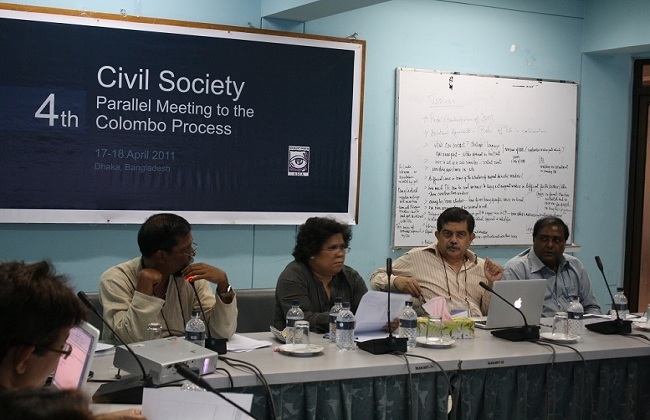For the labor sending countries in Asia, labor migration represents both significant opportunities for national growth as well as challenges to secure safe employment for their workers. Thus, strengthened labor migration management is a shared concern among these countries. Many countries in the region are increasingly engaged in protecting their migrants from exploitative practices in recruitment and employment, as well as providing them with appropriate services in order to reduce their vulnerability before, during and after their overseas employment. These countries also recognize the great need for optimizing the benefits of organized labor migration, including the developing new markets, increasing remittance flows through formal channels, building institutional capacity and inter-ministerial coordination, increasing cooperation with destination countries, and preventing irregular migration.
Against this backdrop and in response to calls from several Asian labor sending countries, the Ministerial Consultation for Asian labor sending countries was held in 2003 in Colombo, Sri Lanka. The ten initial participating states made recommendations for the effective management of overseas employment programs and agreed to regular follow-up meetings. Since the first meeting in 2003, the Member States of the “Colombo Process” met in Manila, Bali and Dhaka in 2004, 2005 and 2011 respectively to review and monitor the implementation of previous recommendations and identify areas of future action. As the Colombo Process evolved with each Ministerial Consultation, new members and partners have joined and the Consultations have expanded in scope.
office@warbe.org.bd

Colombo Process
Objectives:
The Ministerial Consultation on Overseas Employment and Contractual Labor for Countries of Origin in Asia or the Colombo Process aims to provide a forum for Asian labor sending countries to:
- Share experiences, lessons learned and best practices on overseas employment;
- Consult on issues faced by overseas workers, labor sending and receiving states, and propose practical solutions for the well being of vulnerable overseas workers;
- Optimize development benefits from organized overseas employment, and enhance dialogue with countries of destination;
- Review and monitor the implementation of the recommendations and identify further steps for action.
The current Focuses of this
- Protection of and provision of services to migrant workers;
- Optimizing benefits of organized labor migration such as the development of new overseas employment market and increasing remittance flows;
- Capacity building, data collection and inter-state cooperation.
11 Members (Current chairmanship: Sri Lanka)
It has 11 member states with chairmanship to Sri Lanka. The others states are- Bangladesh, Afghanistan, Pakistan, Philippines, China, India, Thailand, Indonesia, Vietnam, Nepal.

Contact Us
WARBE Development Foundation, B183 Rd 21, Dhaka-1206
01913-072354comilla.misc@gmail.com








